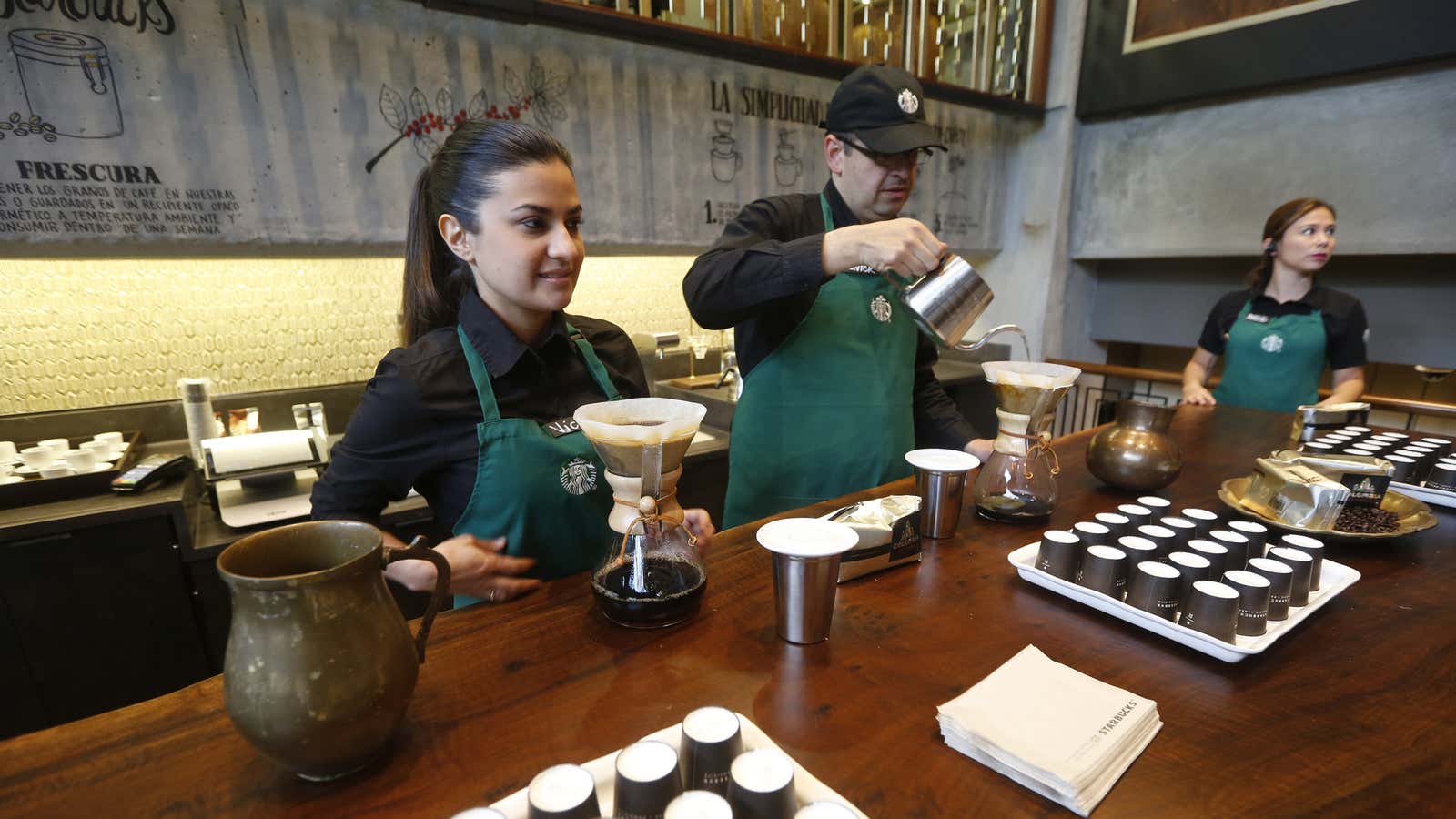As presidential candidates declare why they seek to be elected in 2016, they are promising jobs, growth, and a better future. With nearly three-quarters of polled Americans fearing the next generation will be worse off than their own, these promises cannot afford to be hollow. For millions of people, an uncertain future has become a constant, as lives are increasingly changed by technology and a networked world during the biggest economic transformation in a hundred years. The country is crying out for a plan of action.
The loss of optimism points at the defining challenge of our time: to make sure that all Americans will be included in this transformation.
The dream of working hard to achieve a brighter future has long been the bedrock of American society. But in the last two decades, technology has redefined the landscape of work and the economy. Jobs that once seemed secure are being eliminated, and many Americans no longer know where to find opportunity in this new digital era. They don’t know how to prepare for the jobs of the future. They don’t know which diplomas or credentials will be meaningful anymore. They don’t know what skills will be recognized or valued.
Faced now with the single most dramatic shift in our society since the Industrial Revolution—one that has disrupted the expectations and dreams of millions of Americans—we need a bold vision for a new way forward. To create genuine opportunity in the connected age we must rethink how we innovate, educate, invest and train, in every community, starting today.
On the learning front, we need to fundamentally rethink post-secondary education and develop new models for higher learning in the United States. We must open more doors to college for Americans from all backgrounds and we must also recognize that a four-year college education is only one of many paths to success in the 21st century.
Education has become an ongoing, lifelong experience—it can no longer have an expiration date. We must embrace alternative learning models and credentials such as flexible, online paths that teach skills employers require and students need to succeed in life; adaptive learning systems that are tailored to meet a person’s unique needs and abilities; and affordable learning so Americans can access the education they need to qualify for and land jobs.
Take the recently expanded Starbucks College Achievement plan, a partnership between Starbucks and Arizona State University, inspired by the Rework America Initiative. In less than one year, 2,000 Starbucks partners have committed to the innovative plan that is providing an online college education at ASU for Starbucks employees in the US. Already the program is having impact: improving the lives of workers and increasing opportunities to enhance one’s knowledge and skills.
In addition to education and training, we must use technology to create a fundamentally new American workforce that opens the door to new career paths, and the creation and expansion of American businesses along the way.
We can connect small and medium size businesses to the world’s consumers and we can increase exports, especially of services, to meet the growing needs of billions of new global customers. We can reimagine small business investment and reduce barriers to business growth by expanding access to smarter capital and credit through new lending models. We can innovate workflows and jobs so that new tools create more opportunities for meaningful work.
The internet can connect workers, employers, and training programs in a more transparent and competency-based job search. In real time, workers can look for opportunities and see the skills required for jobs in their geographic area. Educators will have unprecedented insight into what skills must be trained, allowing them to plan for the future and begin to close our chronic mismatch between skills and work.
LinkedIn already demonstrates the power of such a platform for professionals by matching candidates’ creativity and talents to jobs. LinkedIn users embed their educational achievements, skills, and unique training directly into their profiles, increasing attention from recruiters tenfold. We need to expand this for everyone.
America has come through profound economic transformations before and we can successfully do it again. But to get there, all of us—from our presidential candidates to leaders in business, education, government, religion, and politics—must help define the 21st century paths to good careers. It’s why dozens of our nation’s leaders have joined forces, through Rework America, to make this connected age work for everyone.
In the midst of the new economy’s upheaval, the one thing that hasn’t changed is the fundamental belief that has driven this country since its inception: That the American Dream should be within reach for everyone.
This is the defining challenge of our time. This is our time to act.
The authors are participants of Rework America: The Markle Economic Future Initiative, a group of more than 50 national leaders focused on driving solutions to the changes brought by today’s networked world.
